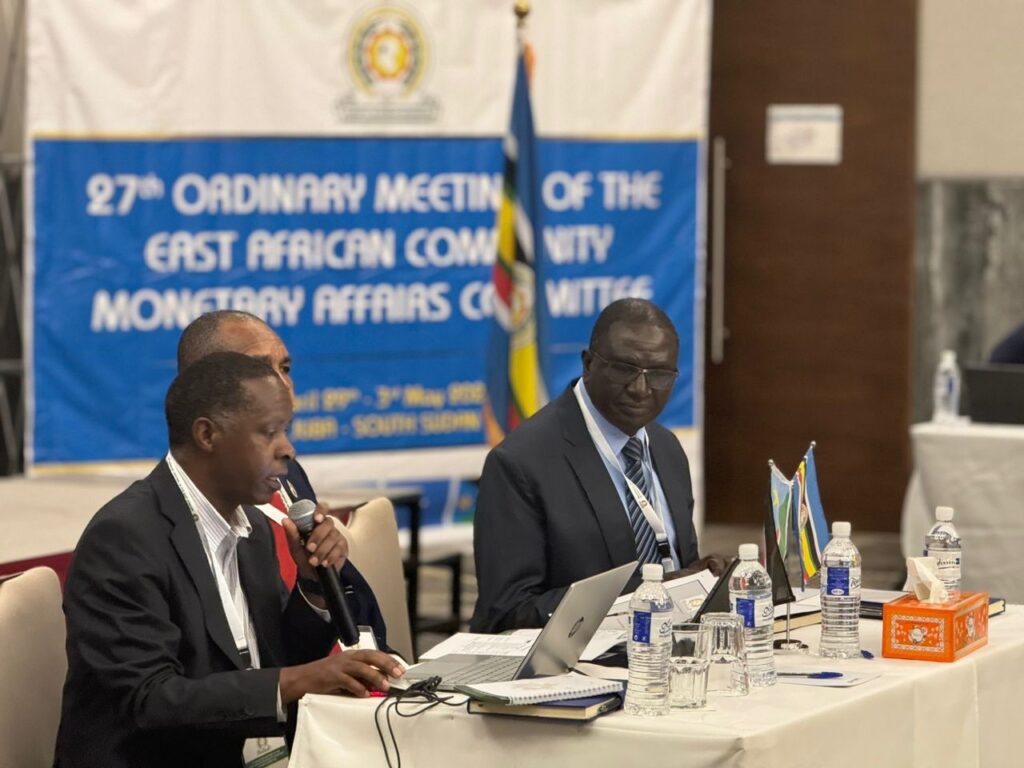East African Community Bank Governors have resolved to review timelines for the creation of a single currency as member states push the implementation to 2031 amid geopolitical tensions.
The regional bank governors reached the conclusion during an ordinary meeting chaired by South Sudan’s Bank Governor on 27 April in Juba.
In attendance were Mr Edouard Normand Bigendako, the Bank Governor of Burundi; Dr Kamau Thugge, Bank Governor of Kenya, Emmanuel M. Tutuba, Bank Governor of Tanzania; Dr. Thierry Migigo Kalisa, the Chief Economist at the National Bank of Rwanda and Dr. Adam Mugume who is the Executive Director at the Bank of Uganda.
The Bank Governors of the Democratic Republic of Congo and Somalia did not turn up and had not representatives at the meeting.
In a joint statement, the Governors who make up the East Africa Community Monetary Affairs Committee said they reviewed the status of the implementation of the March 2023 ordinary meeting which resolved the single currency reunion to 2031.
The Governor said partners states have made progress towards implementing price-based monitory policy frameworks.
These include harmonizing regional macroeconomic and financial statistics to support policy formulation, implementing EAC financial market structure, harmonizing principles and rules for the regulation and supervision of the region’s financial system.
Other achievements noted is the enhancement of risk and crisis management frameworks to ensure stability of the region’s financial system, adoption of climate risk awareness and promotion of the use of regional cross-border payment system.
The Bank governors have now reaffirmed their commitment to implementing the remaining activities set out in the revised monetary union roadmap to achieve a single currency by 2031.
They have tasked themselves to review the performance of the convergence criteria including the timelines to meet the deadline.
In the push for single currency, the regional bank governors will have to grapple with what they called increase inflation due to high global commodities exerting pressure on exchange rate and the adverse impact of climate-change and geopolitical tension.
“The region still faces unfavorable Global Financial conditions due to negative spill overs from geopolitical conflicts and the impact of climate change that continue to weigh on the economic performance of East African countries,” said Majok Nikodemo Arou , the spokesperson of Bank of South Sudan.
Despite improved GDP of the region, a rise from 2.8 to 8.1, the partners states, according to the bank governors, are confronted with high fuel and food import prices, costly market access and pressure on the exchange rate and foreign reserves.
“The region is confronted with high fuel and food import prices putting pressure on the exchange rate and foreign reserves.
‘The increase in inflation in 2022 and part of 2023 , driven by high global commodity prices mainly food and energy prices, have made significant strides towards implementing price-based monetary policy Frameworks harmonizing regional economics and financial statistics to support policy formulations,” he added.

